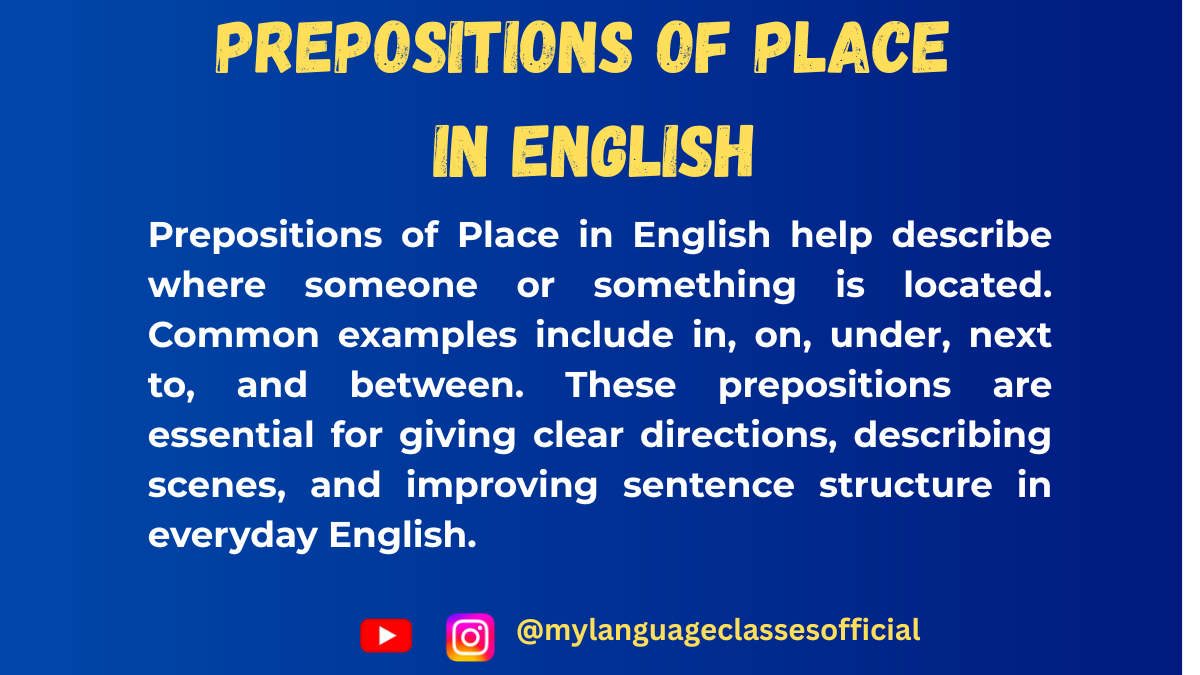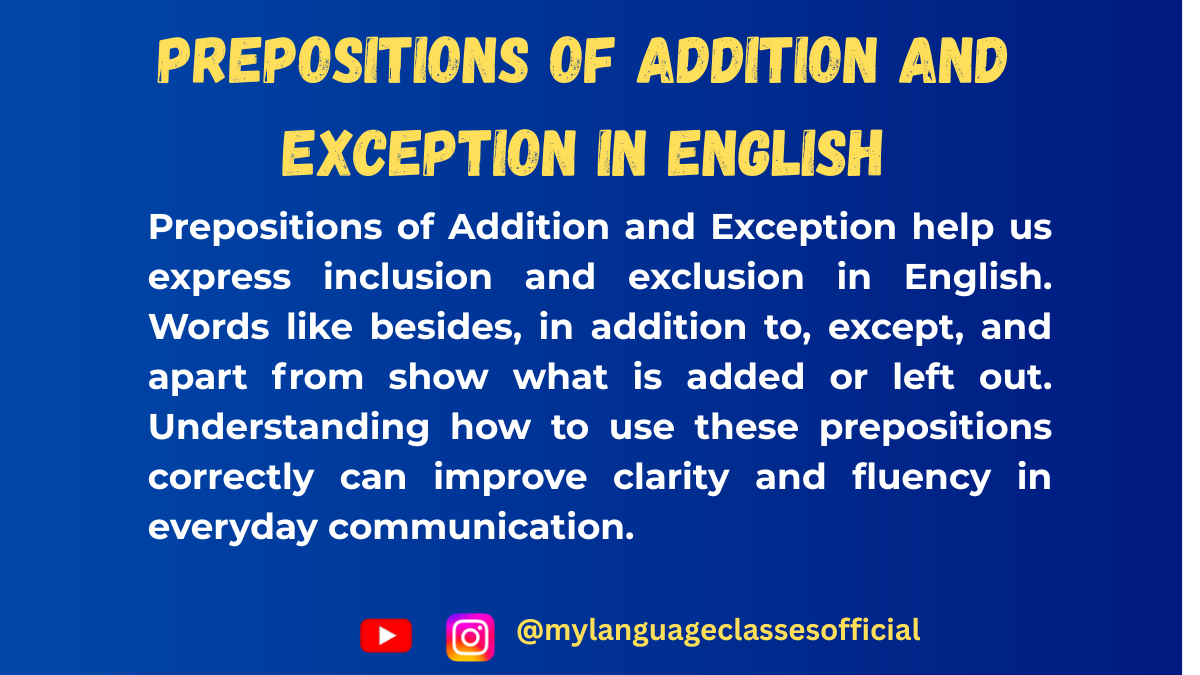Your cart is currently empty!
Tag: grammar rules for prepositions
-

Prepositions of Place in English
Prepositions of place are essential in English as they help indicate the location of people, objects, or actions. Understanding them correctly enhances fluency and accuracy in spoken and written English. This article will provide a detailed explanation, a categorized list, examples, exercises, and essential things to remember while using prepositions of place.
What is a Preposition of Place?
A preposition of place is a word used to show the location or position of an object concerning another object. These prepositions answer the question “Where?” and are essential for clear communication.
List of Prepositions of Place and Their Usage
Below is a list of commonly used prepositions of place along with their meanings and example sentences.
Preposition Usage Example 1 Example 2 In Inside a space, area, or container The books are in the bag. She is in the room. On On the surface of something The book is on the table. There is a painting on the wall. At A specific point or location She is at the bus stop. We met at the restaurant. Under Below something The cat is under the table. He hid under the bed. Over Above something without touching The lamp is over the table. The bridge is over the river. Above Higher than something The clock is above the door. Planes fly above the clouds. Below Lower than something His shoes are below the bed. The valley is below the mountain. Between In the middle of two things The park is between the school and the mall. She sat between her friends. Next to Beside something The school is next to the hospital. She is sitting next to her brother. Behind At the back of something The car is behind the building. There is a garden behind the house. In front of Before something The teacher is in front of the class. There is a park in front of my house. Inside Within an enclosed space The keys are inside the drawer. She stayed inside the house. Outside Opposite of inside The kids are playing outside the house. There is a cat outside the shop. Near Close to something There is a bank near my house. She lives near the station. Far from Distant from something His school is far from his home. The hotel is far from the airport.
More Example Sentences:
- There is a mirror on the wall.
- The plane is flying above the clouds.
- She is waiting at the entrance.
- The ball is under the chair.
- The bakery is next to the supermarket.
- He kept his phone inside his pocket.
- The children are playing outside the house.
- The library is between the coffee shop and the bank.
- The painting is hanging over the sofa.
- There is a tree behind the house.
Fill in the Blanks:
- The cat is ___ the table.
- The park is ___ the school and the library.
- She is waiting ___ the bus stop.
- The ball rolled ___ the couch.
- The students are sitting ___ the teacher.
- The books are ___ the bag.
- The hotel is ___ the beach.
- The keys are ___ the drawer.
- He is standing ___ the door.
- The stars are shining ___ the sky.
Answers:
- under
- between
- at
- under
- in front of
- in
- near
- inside
- behind
- above
Things to Keep in Mind:
- Articles: Use definite and indefinite articles appropriately (e.g., “in a house” vs. “in the house”).
- Gender & Number: Prepositions of place do not change based on gender but may be influenced by singular/plural usage (e.g., “between two buildings”).
- Fixed Expressions: Some prepositions are part of set phrases, such as “at home,” “on the street,” or “in bed.”
- Context Matters: Some prepositions can change meaning based on the context (e.g., “on the bus” vs. “in the car”).
- Prepositions vs. Adverbs: Some words can function as both prepositions and adverbs. For example, “inside” can be a preposition in “inside the house” but an adverb in “Come inside!”
Conclusion
Prepositions of place are fundamental in English grammar and crucial for describing locations accurately. By understanding their usage and practicing them through exercises, you can significantly improve your English fluency. Keep practicing with real-life situations, and soon, using prepositions of place will become second nature!
If you enjoyed this lesson, be sure to check out more posts like this on my blog at My Language Classes. Don’t forget to subscribe my YouTube channel and follow me on Instagram for the latest language learning tips and lessons. Leave a comment below to share your thoughts, or ask any questions you have about nouns.
Happy learning! 😊

